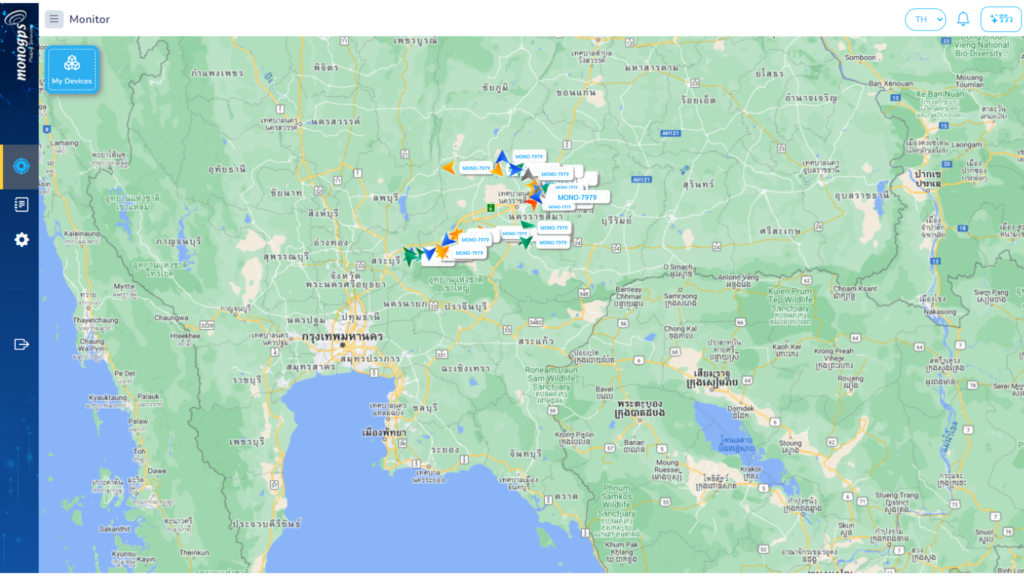Why Must Trucks Be Equipped with GPS?
The Department of Land Transport (DLT) has issued a regulation regarding the "Installation and Use of GPS Tracking Systems for Trucks and Public Transport Vehicles." This regulation has been in effect since January 5, 2016, with the goal of enhancing road safety and improving transportation efficiency.
Which Vehicles Must Be Equipped with GPS Tracking?
Public Transport Vehicles: Double-decker buses Buses Passenger vans Taxis Minibuses (Yellow Plate), both scheduled and non-scheduled services
Freight Trucks: Tractor-trailers Large trucks (10 wheels or more) Hazardous materials transport trucks
Exceptions: Songthaews (modified pickup trucks used as public transport) Category 4 and Category 1 regional transport vehicles
How Does GPS Tracking Work?
1.The GPS system records key driving data, such as speed, location, driving hours, and driving behavior.
2.The system analyzes driving patterns to identify dangerous behaviors like speeding, sudden braking, and fatigue driving to help prevent accidents.
3.Real-time tracking allows fleet operators to monitor vehicle locations, improving logistics and planning.
4.GPS enables business owners to supervise driver behavior, ensuring safer journeys.
5.Efficient route planning and reduced reckless driving contribute to lower fuel costs and maintenance expenses.

Benefits of GPS Tracking Installation
1.Reduces road accidents
2.Improves transport planning by minimizing travel time
3.Lowers fuel and maintenance costs
4.Enhances driver training and supervision
5.Boosts passenger confidence in reaching their destination safely
Additional Requirements
1.Drivers must swipe their driver’s license before starting their trip.
2.GPS data, including location and speed, is sent to the DLT every 30 seconds.
3.Driving records must be stored for at least 6 months to 1 year.
Conclusion
Enforcing GPS tracking for vehicles is a significant step toward modernizing Thailand’s public transportation system, ensuring safer travel, and helping fleet operators manage their vehicles more efficiently. Additionally, it aligns with international transport safety standards.
Recommendations for Fleet Operators
Choose a high-quality, certified GPS system for accurate and reliable data. Train drivers to understand and use GPS effectively to maximize its benefits. By following these measures, both drivers and transport operators can enhance safety, efficiency, and compliance with regulations.

